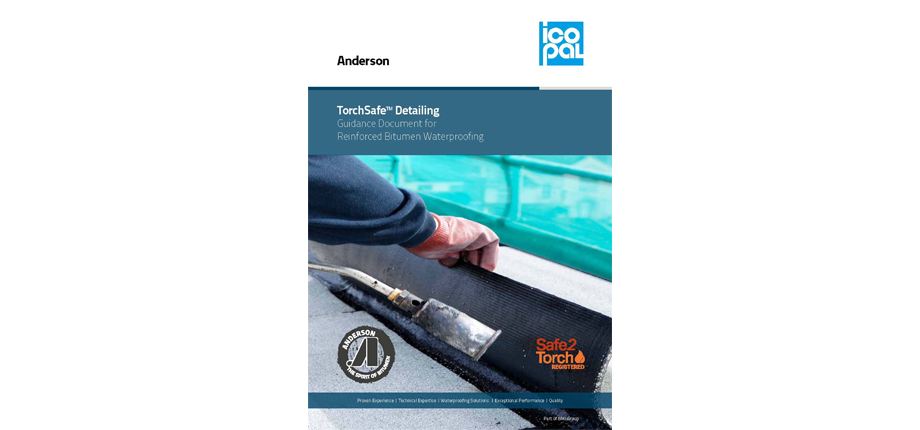Flat roofing specialist Icopal, a BMI Group company, has produced a six-page guide that explains the fire risks of flat roofing and how to mitigate them. Recent years have seen a string of serious fires, such as the £60m Kelsey Academy incident in 2016, which have occurred because roofing contractors weren’t aware of flammable elements on the roof.
TorchSafeTM Detailing, Guidance Document for Reinforced Bitumen Waterproofing sets out when roofing membranes can be torch applied, and when they can’t. It also underlines the responsibilities of all those involved to ensure that a roof installation is safe.

“As a manufacturer we often find ourselves as the designer too, providing detailing and advice, which means that we have very important responsibilities as set down in the CDM regulations,” says Icopal Product Manager Dan Tucker. “We have also signed up to the NFRC’s Safe2Torch Campaign which means that we are committed to ensuring our customers work safely. This guide helps us with that commitment.”
The National Federation of Roofing Contractors (NFRC) launched its Safe2Torch campaign in July 2017. Its aim is to make registration to Safe2Torch mandatory for all its members, a move which Icopal whole-heartedly supports.
The guide explains that any element of a roof which contains – or may be likely to contain – flammable material should be covered in a membrane that does not require a flame to install it, such as Icopal’s range of thermically activated (TA) products. Non-torched membrane should be laid to a distance of at least 900mm from such features, which include rooflights and lanterns, timber upstands, open perpends and pitched roof abutments.
As part of Icopal’s technical service offer, its technical team can survey and assess roofs, providing a bespoke solution which identifies areas of risk and suggests appropriate products with a roof plan which clearly highlights zones that are safe to torch and those that are at risk.
“It isn’t always obvious where there might be flammable material,” says Tucker. “If in doubt, it’s important that contractors take advice, which is what we are here for. And, if ever in doubt, err on the side of caution. Failing to do so can be disastrous, as we have seen all too often.”
www.icopal.co.uk
- Log in to post comments














